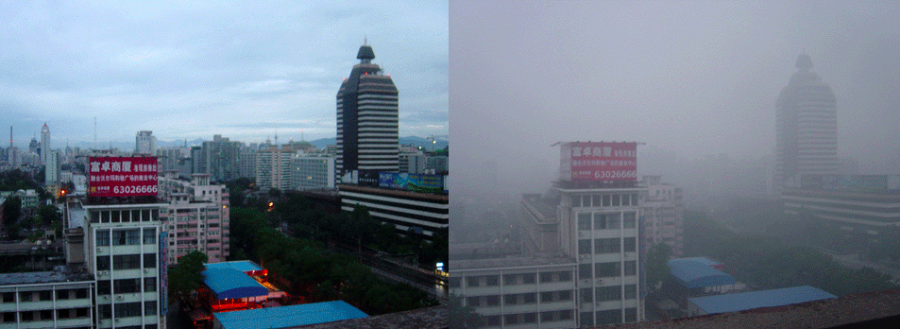You don’t want canned air, do you?
The tragedy of chemical explosions in Tianjin, China is now causing many concerns about the toxins in the already polluted air. Zhou Haisen, one of residents of the city, decided to leave his town with his family as his fear of floating chemical toxins was reinforced by posts on social media. Although the Chinese government denied that events in which people reported burning sensations on their lips and elbows after it rained bears any relation to the explosion, the angst of death still stings the people of Tianjin. As Zhu Haisen said, “Of course we don’t believe the government about the air. They’re always unwilling to tell the truth. I don’t want to bet my life on their words.”
Similarly, just as the toxin explosion had toxic effects, so does air pollution created by industries: it can lead to premature deaths. According to data, more than two thirds of the world’s air pollution is produced in China and India. Especially in Beijing, China, the air pollution has been rising to hazardous levels.
Three million people have died prematurely, and experts estimate that this number will double by 2050. A study published in Nature suggests that air pollution is associated with many diseases such as “chronic obstructive pulmonary disease linked to enhanced ozone, acute lower respiratory illness,” and so on. It names particulate matter and ozone as major pollutants, and the causes of the abovementioned health effects.
Interestingly, these air pollutants differ from place to place. For instance, residential heating and cooking are pollutants mainly produced in China and India, while emissions from agriculture are major pollutants in the United States, Europe, and Japan.
The study urges China to limit production of air pollutants. Simply put, air pollution is inevitable, because “the urban population is expected to grow relatively rapidly from 3.6 billion in 2010 to 5.2 billion in 2050, and combined with increasing air pollution concentrations the health impacts will escalate.”
Regardless of the type of air pollutant, experts argue that government should intervene and impose strict regulations on toxic industries. The number of premature deaths by the pollution will double by 2050, the year in which the urban population will reach 5.2 billion, under an assumption that the government does not interfere at all until this year. In other words, if the government interferes, it can diminish expected hostility with appropriate regulations and relentless monitors. For instance, the Chinese government recently succeeded in controlling the air pollution. Before China marked 70th anniversary of Victory Day, the government banned 5 million registered cars and shuttered hundreds of factories. According to Upworthy, “By the day of the parade, the air quality in the city of Beijing had dramatically improved.” Although the Beijing sky has now returned to its “originally” polluted condition, this event suggests that regulations can certainly clean the sky and save people from premature deaths.
Sources: Time, Nature, New York Times, CNN, Upworthy

Next year, The Talon loses a tremendously important News Reporter, as Matthew Kim is a senior and finishes high school in May. The Talon knows Matthew...










